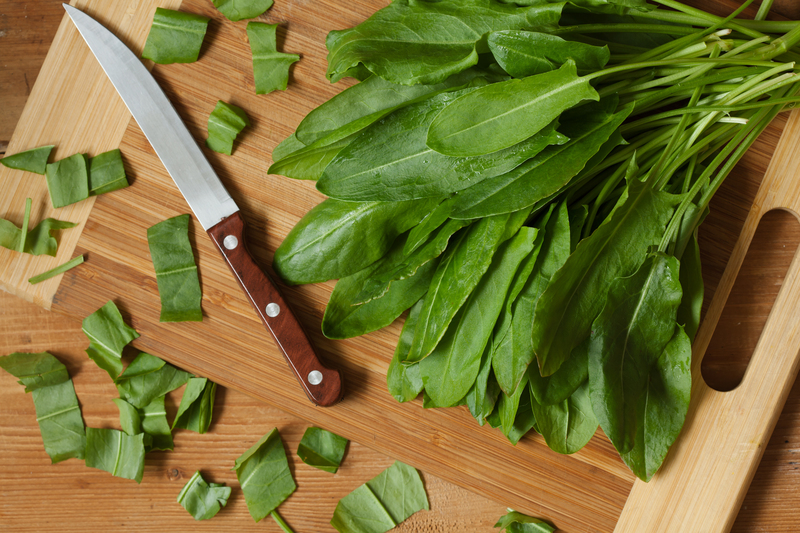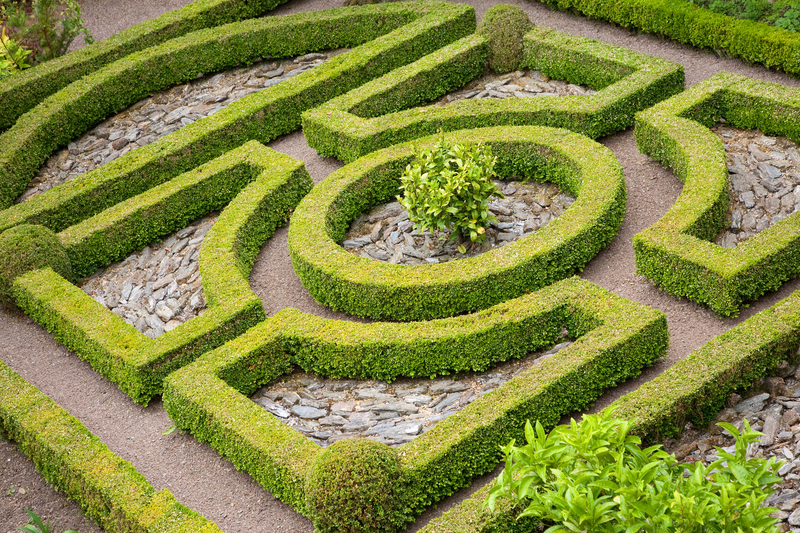Composting: Waste into Nutrient Soil
Posted on 03/09/2025
Composting: Transforming Waste into Nutrient-Rich Soil
In an age where sustainability is more crucial than ever, composting emerges as a simple yet powerful practice that benefits our planet and gardens alike. Composting is the process of turning organic waste into nutrient-rich soil, providing a circular solution to household and garden waste while enhancing soil fertility. This comprehensive article will delve into the many facets of composting, explaining methods, benefits, and tips to convert waste into valuable compost. Whether you're new to the concept or looking to refine your technique, this guide will equip you with all you need to know about creating black gold from what might otherwise end up as landfill.
What is Composting?
At its core, composting is the controlled decomposition of organic matter--such as food scraps, leaves, and yard waste--by microorganisms, fungi, worms, and other decomposers. The process transforms these materials into a rich, earthy substance known as compost. This finished product can be used to enrich garden beds, potted plants, lawns, and more.
- Reduces landfill waste: Organic waste makes up a significant portion of the waste stream. Composting keeps it out of landfills.
- Improves soil health: Compost adds essential nutrients and improves soil structure.
- Reduces greenhouse gas emissions: Properly managed compost piles limit methane production, a potent greenhouse gas.
- Supports plant growth: The nutrients in compost aid in healthier, more productive plants.

The Science Behind Composting
Composting works by harnessing the power of microorganisms and decomposers which break down organic material under aerobic conditions (with oxygen). Throughout the composting process, chemical and physical changes occur, converting waste into humus--a stable, biologically active soil amendment.
Key Ingredients for Successful Compost
To create optimal compost, you need four main components:
- Carbon-rich materials (browns): dried leaves, straw, newspaper, cardboard
- Nitrogen-rich materials (greens): fruit and vegetable scraps, coffee grounds, grass clippings
- Water: Maintains moisture for microbial activity
- Oxygen: Required for aerobic decomposition
Balancing "browns" and "greens" is vital. Too much carbon can slow the process, while excess nitrogen leads to odors. Aim for roughly three parts browns to one part greens. Turning or aerating your pile helps infuse oxygen and speeds up decomposition.
Types of Composting Methods
There are several composting methods available, tailored to different lifestyles, spaces, and needs. Choosing the right one can make composting easier and more effective for you.
Backyard Composting
This traditional approach involves creating a compost pile or bin in your yard. It is ideal for households with gardens and ample outdoor space. Popular bin styles include open piles, enclosed bins, and tumbler bins.
- Pros: Handles large quantities of yard and food waste, cost-effective, produces plenty of compost.
- Cons: Requires outdoor space, regular turning, and monitoring.
Vermicomposting (Worm Composting)
Vermicomposting relies on red wigglers or similar worms to break down food waste in small, enclosed bins. Perfect for apartments, schools, and those with limited outdoor space, vermicomposting is quick and produces a superior soil amendment known as castings.
- Pros: Compact, odorless if done right, produces high-quality compost.
- Cons: Sensitive to certain foods (like citrus and meat), requires worm maintenance.
Bokashi Composting
Bokashi is a fermentation-based technique from Japan that uses specific microbes to break down all kinds of kitchen scraps--including dairy, meat, and cooked foods--inside an airtight bin.
- Pros: Handles a broader range of foods, rapid process, suitable for small spaces.
- Cons: Requires specialized bran, produces a pre-compost product that needs to finish in soil.
Community Composting
If home composting is not possible, consider contributing to community composting programs. Many cities and gardens operate collection sites or curbside pick-up services that turn local food waste into compost for public use.
- Pros: Easy for apartment dwellers, supports broader sustainability.
- Cons: May not offer finished compost for personal use, limited to specific locations.
What Can and Cannot Be Composted?
Understanding what can go into your compost pile is critical for making rich, safe compost. Here is a quick guide:
Compostable Items
- Fruit and vegetable scraps
- Coffee grounds and filters
- Tea bags (without plastic)
- Eggshells
- Grass clippings
- Leaves and small branches
- Shredded newspaper and cardboard
- Hair and pet fur (in moderation)
- Yard trimmings
Do Not Compost
- Dairy products
- Meat, fish, and bones (unless using Bokashi)
- Greasy foods and oils
- Pet waste from carnivores
- Diseased plants
- Glossy/coated paper
- Plastic, glass, or metal
- Invasive weeds or seeds
If in doubt, remember that anything natural and plant-based is typically a safe bet.
Step-by-Step Guide to Starting Your Own Compost
Ready to embark on your compost journey? Here's how you can easily set up your own backyard composting system:
- Choose a location: Pick a dry, shady spot near a water source with good drainage.
- Build or buy a bin: Use a commercial compost bin, build your own from pallets, or simply make a pile.
- Layer your materials: Begin with a base of browns (twigs, dried leaves), alternate with greens (kitchen scraps, grass).
- Maintain moisture: Your pile should feel like a wrung-out sponge. Add water if too dry; add browns if too wet.
- Turn regularly: Every couple of weeks, mix the pile to aerate it and speed decomposition.
- Monitor progress: The pile may heat up and shrink as microbes go to work. In 3-6 months, you'll have finished compost!
Tip: Chop or shred large items to increase the surface area and speed up composting.
Using Your Finished Compost
When your compost looks dark, crumbly, and smells earthy, it's ready to use. Sift out any big pieces (which can go back into a new pile), and put your homemade fertilizer to work:
- Top-dress garden beds: Add a layer of compost to the soil surface around plants to boost nutrition.
- Mix into potting soil: Blend compost with potting mix for healthier potted plants.
- Feed your lawn: Sprinkle compost over the lawn and water well.
- Use as mulch: Spread compost around trees and shrubs to suppress weeds and retain moisture.
Common Composting Problems and Solutions
Every composter faces challenges from time to time. Here's how to handle the most common issues:
- Bad smells: Usually caused by too much wet material or lack of air. Add browns, turn the pile, and avoid adding dairy or meat.
- Pile not heating up: Could be too dry, too small, or lacking greens. Add water, greens, and make sure the pile is at least 3x3 feet.
- Pests: Avoid adding meat, dairy, or cooked food. Use a lidded bin if necessary.
- Pile too wet or too dry: Tweak with browns (for wet piles) or water (for dry piles).
The Environmental Impact of Composting
Turning waste into nutrient soil is not only good for plants--it's vital for the planet. Organic matter that decomposes in landfills does so without oxygen, creating methane gas, a potent contributor to climate change. Composting in the presence of oxygen significantly reduces this methane output, making it an essential tool in fighting climate change. Additionally, compost improves drought resistance, reduces the need for commercial fertilizers, and helps restore degraded land.
Benefits at a Glance
- Reduces landfill waste and lowers waste management costs
- Decreases greenhouse gas emissions
- Enriches soil and supports biodiversity
- Improves water retention in soil
Tips for Successful Composting
- Cut waste into small pieces to accelerate decomposition.
- Maintain a balance between greens and browns to avoid odors and slowdowns.
- Turn the pile regularly to introduce oxygen and mix materials.
- Keep the pile moist but not waterlogged.
- Avoid adding food with strong odors or oils, unless using enclosed, pest-proof bins.
Remember, composting is a natural process--while it helps to monitor and tweak the pile, nature knows what to do!

Innovations in Composting: Tech Meets Tradition
Modern composting intersects with technology in exciting ways, making it easier than ever to turn your household waste into nutrient-dense soil.
- Compost tumblers: These rotating bins simplify turning and speed up decomposition.
- Electric composters: Appliances for faster, odor-free composting indoors.
- Smart monitoring devices: Some gadgets track moisture, temperature, or pH to optimize your pile automatically.
- Online communities: Forums and apps offer advice, troubleshooting, and local composting connections.
Conclusion: Composting for a Greener Future
Allowing waste to become valuable nutrient soil is a transformative act for the environment, our gardens, and our sense of stewardship. Whether you have acres of land or just a countertop bin, composting is an impactful step toward sustainability. By adopting compost habits, we close the loop on food and yard waste, build healthier soils, reduce pollution, and play a role in the fight against climate change. Start composting today--your plants, your community, and future generations will thank you.
Further Reading & Resources
Happy composting--turn your waste into nutrient-rich treasure today!
Latest Posts
The Ultimate Guide to Refreshing a Neglected Garden
Relax and Unwind: Zen Gardens for Calm Outdoor Spaces
Creative Solutions to Eradicate Weed Issues

